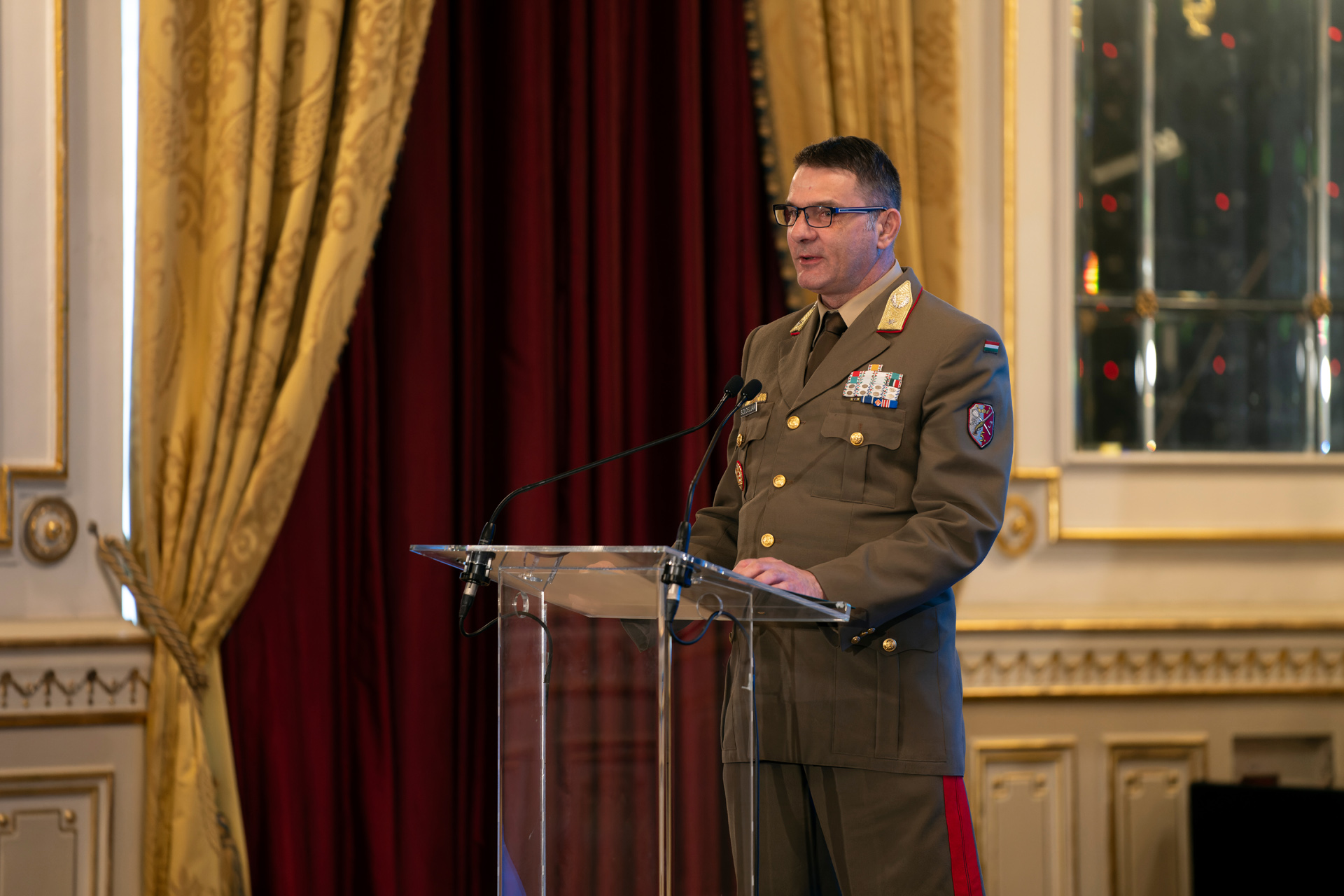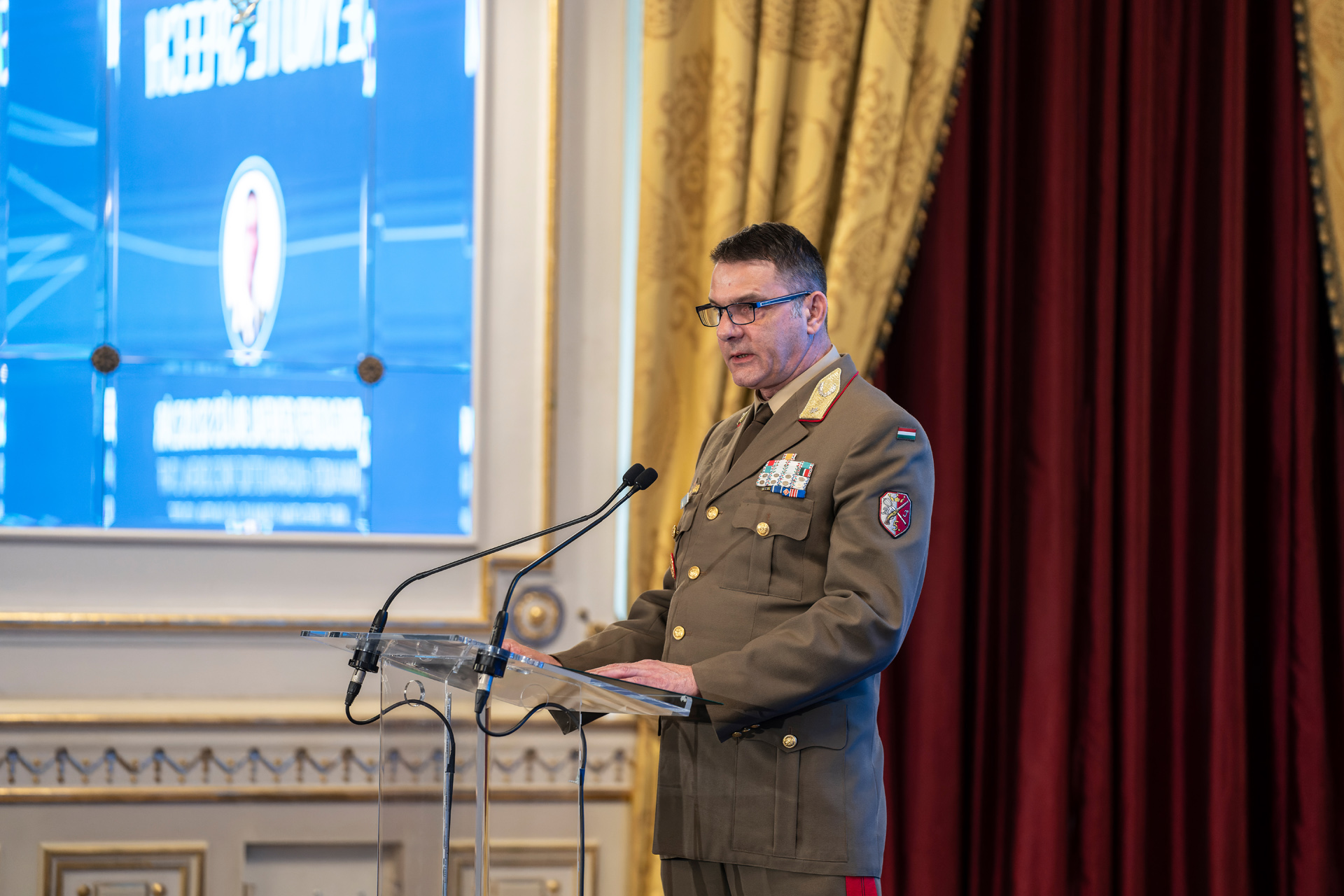Brigadier General Balázs Szloszjár, Commander of the Joint Force Command and Control Centre of the Hungarian Defence Forces General Staff, began his opening speech by stating that he did not intend to inundate the civilian audience with military jargon, as the language of the military is difficult for those not closely affiliated with the Armed Forces to understand. He welcomed the conference participants to Budapest and, recalling his own experiences, described what war means for a country. In 1999, in Kosovo, Brigadier General Szloszjár personally experienced that there are no black or white sides to war because every nation is equally affected by such an international crisis. The task of soldiers, he emphasized, is to see the face of the nation even in situations burdened with conflicts.
The main theme of the opening speech was the European security architecture – and its changes – and the relationship with the Western Balkans. Hungary considers the stability of the Western Balkan countries a priority, as it ensures not only the security of the region but also that of Europe as a whole. Brigadier General Szloszjár reminded the audience that currently more than 600 Hungarian soldiers are serving abroad (in addition to the Western Balkans, also in Asia and Africa), and Hungary is an active member of the NATO KFOR and EUFOR Althea international peacekeeping missions. Currently, there is significant international attention on Kosovo, so in 2024, Hungary increased its troop numbers, including medical units specialized in providing medical care alongside units performing combat tasks.
Brigadier General Balázs Szloszjár emphasized that since the beginning of the Russo-Ukrainian war, there has been a significant increase in Russian influence in the region. Regarding the conflicts affecting the Western Balkans, he pointed out that there is currently no positive change in Kosovo, as the bilateral dispute requires a non-military solution, and the situation in both Kosovo and Serbia depends on the controlling political elite. In his view, in Bosnia and Herzegovina, a significant portion of the political players use nationalism as a tool to turn the constituent nations against each other.
The Brigadier General also detailed Hungary’s military contributions to the Western Balkans over the past decades. Hungary first sent military units to the Western Balkans region in 1996, and in 1999, another Hungarian contingent arrived in Kosovo, primarily tasked with ensuring security, a role they continue to fulfil. Between 2010 and 2023, Hungary carried out chief of staff tasks during international missions in Bosnia and Herzegovina, and Hungarian units deployed to Bosnia and Herzegovina received assignments including border control and evacuation missions.
Brigadier General Szloszjár Balázs’ speech reinforced Hungary’s commitment to ensuring stability and peacekeeping in the Western Balkans, actively participating in international missions to create security for the region and Europe as a whole. However, resolving regional conflicts requires not only military presence but also social cohesion and political will.




